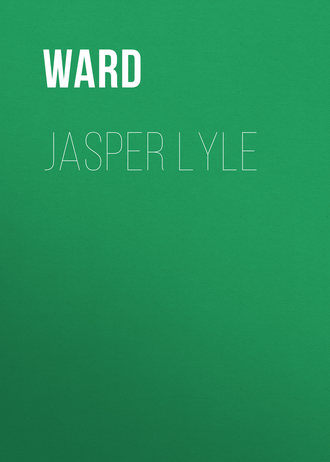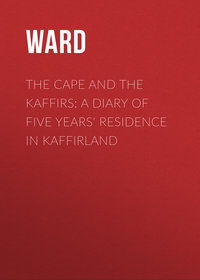 полная версия
полная версияJasper Lyle
The events of former years were scarcely ever alluded to; Marion’s twins were painfully like their little cousin buried in the African desert; but no one spoke of him. The children lived almost in Eleanor’s room.
One evening, after she had gone upstairs to dress for dinner, these little creatures detained her till the second bell rang. Her hair was hanging over her dressing-gown, and, finding that she could not possibly be in time, she ran to Marion to say she would join the little circle at tea.
“Marion! Marion!”—but Marion had gone. Ormsby’s study door was open; there was a light within! She called to him—no answer.
The children ran up to her; they threw the door wide open; two wax-lights were burning on the table, and before the fire stood Frankfort.
And for the first time for many long years Eleanor uttered a cry of joy.
She forgot that she was in her dressing-gown, that her hair hung disordered about her, that the children were half-frightened at the sight of a stranger.
Frankfort opened his arms again to her—
“Never again to part, Eleanor,” said he.
“Never, never,” she answered.
He strained her to his breast, and her tears of unutterable joy mingled with his kisses.
“Nurse—nurse Abbot, here is Aunty crying, and a strange gentleman kissing her. Oh! nurse, do come here.”
But nurse Abbot drew the twins from the corridor into their nursery, and kept them there as long as she thought proper.
When Colonel Frankfort had been married a year or two, people who had been mystified about Mrs Lyle’s widowhood forgot everything but that she was the sweetest and gentlest and most, lowly-mannered lady they had ever seen. The old air of melancholy was so habitual to her, she would have been less charming without it. The sisters were near neighbours during half the year, and for one month in their lives were united with all their South African friends; for the Daveneys paid another visit to England, and the Trails accompanied them. May and Fitje and Ellen were on the establishment; Mr Trail had brought them home as honest and rare specimens of what Christianity had done for South Africa. Gray and Amayeka—we never can call her Mrs Gray—were left in charge of school and pupils, and did their duty well in the good teacher’s absence.
Sir Adrian Fairfax himself examined the register in the old church in Cornwall, and finding that the death of the curate’s daughter preceded Sir John Manvers’s second marriage, he never revealed the sad history of Sir John’s earlier years.
Not long since, I saw two charming pictures of the sisters in the exhibition of the Royal Academy. They were in the characters of Day and Night. I recognised them, though they were not mentioned by name in the catalogue. Marion stood in the sunlight, with a smile on her face and the glow of summer on her azure scarf. Eleanor was seated in the shade of twilight, with the sea in the distance, and a star rising over her head and irradiating her pale and thoughtful brow.
Were her thoughts wandering over those shining depths to the wilderness where her boy lay buried far from any kindred?
I heard a deep sigh behind me as I stood contemplating these sweet portraits. I turned, and recognised in the somewhat roué-looking young man behind me Clarence Fairfax. A celebrated danseuse of the day hung upon his arm, but she was too much occupied with another admirer to notice his abstracted gaze.
I hope Eleanor did not meet this idol of her former fancy. I saw her five minutes after with her husband and sister. Her veil was down, and I could only hear the music of her gentle and cordial salutation. And then, as exciting intelligence from Southern Africa was filling the papers of the day, she asked, “Is there any news from Kafirland?”
The End1
The Fingoes are the remnant of some powerful nations, conquered and enslaved by the Kafirs, whom they greatly resemble.
2
There can be no literal translation of this word of command, but the oxen understand it well,—to them it means “advance,” “on.”
3
Abati consists of trees with their branches shortened and sharpened at the ends, and they serve as a chevaux-de-frize on an emergency.
4
Kraal indicates a hamlet of huts, as well as a solitary dwelling: I have endeavoured to distinguish the one from the other by prefixing a large K to the former.
5
The lake lately discovered is said to have long been known to the Dutch. Pretorius, the rebel Boer, will not allow travellers to pass through his settlements to explore the locality.
6
A story is told of the regiment, which was composed of many men from Glasgow. Being checked in their charge in battle, an old soldier cried out, “Down the Gallowgate, my boys,” and away they dashed.


